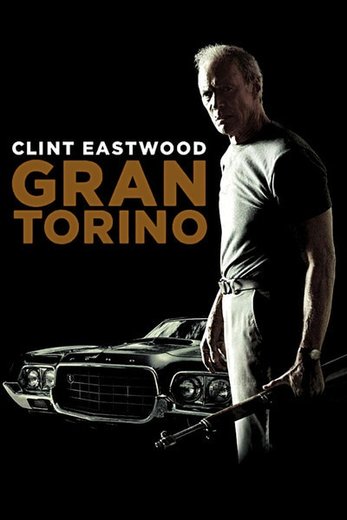 Image found at www.rogerebert.com/reviews/gran-torino-2008 Image found at www.rogerebert.com/reviews/gran-torino-2008 Good Friday is coming in a few weeks and with it, some theology I simply cannot stand anymore. It's found in many worship songs like Jesus Paid it All, In Christ Alone, One Thing Remains (Your Love Never Fails) and more. It's called substitutionary atonement or penal substitution in theological language. And it's heard so often, you might even think it's the only show in town when it comes to explanations and understandings of the cross. Richard Rohr, writes in Eager to Love: The Alternative Way of Francis of Assisi, “For the sake of simplicity and brevity here, let me say that the common Christian reading of the Bible is that Jesus 'died for our sins'— either to pay a debt to the devil (common in the first millennium) or to pay a debt to God the Father (proposed by Anselm of Canterbury [1033–1109] and has often been called 'the most unfortunately successful piece of theology ever written')..." I could not agree more. No matter how sweet sounding the music, the image of God portrayed by such lyrics is a petty, powerless and/or blood-thirsty tyrant requiring some kind of payment or transaction before those He's created can be forgiven, loved, and rescued from eternal damnation. There are lots of problems with this theory. One major problem is that if we read the Hebrew Scriptures, like the Psalms and Prophets, we discover a long-suffering God who was forgiving and willing to forgive long before the cross occurred. Rather than a belief that Jesus' death on the cross was necessary to change God's mind about us, we can see how Jesus' life and death invited us to change our minds about God. Jesus was simply following in his Father's footsteps of relentless, sacrificial love. I have a problem with lyrics and theology that proclaim the opposite. Given this theology is taught through song and sermon in many churches (I taught it years ago as a youth pastor!), we're not apt to actually stop and think through it ourselves. It took me a while to admit that something seemed "off." There would be songs that seemed fine up until the "wrath" or "debt paid" lyrics showed up affecting the whole song. As I questioned this dominant cultural voice in American Christianity, I realized there were others experiencing the same internal dissonance. I also discovered there were other views about the crucifixion (always have been) besides substitutionary atonement. And that one no longer represents my viewpoint... The movie, Gran Torino, on the other hand does. Spoiler alert, if you haven't seen it and want to, you may want to stop reading, go watch it and come back later. And be aware, there's violence (although let's be honest, there has to be if drawing any kind of connection between it and Good Friday). Back to the movie, I did not see it coming, the ending of Gran Torino. In fact, I imagine I got a taste of being stunned the way the disciples might have been stunned on that Good Friday long ago...they simply never saw it coming. Yet the Gospels tell us Jesus did (and so did Clint Eastwood). If you saw the movie but cannot remember the ending, go check out a Youtube clip of the end. The final scene is so rich in symbolism, I'm not even going to get into all of it (plus it would take away from your own disturbances and observations). All I know is that Gran Torino gave a pretty good glimpse of my view of Jesus' death on the cross in less than 5 minutes. A quick overview of the movie...gruff Walt Kowalski (played by Clint Eastwood) is a recently widowed Korean vet. He's fairly estranged from his own family when he gets drawn into the drama of his Hmong neighbors. Young Thao tries to steal Kowalski's Gran Torino after being pressured by his cousin to join the neighborhood gang. You know that Eastwood is not going to let that happen! This event leads to Kowalski developing a relationship with the family and getting an inside look at the cycle of violence and poverty experienced by the Asian community in his neighborhood. He sees how his well-intentioned advice to Thao to get a decent job and stay away from the gangs simply doesn't work, no matter how hard Thao tries, he and his sister cannot escape the brutality and injustice. It requires something more to liberate Thao and his sister. And that's where we start seeing Kowalski's single-minded intensity and there's no mistaking he is planning something. What he's planning, we have no idea. Although we know something is about to take place when one night he shows up at the house where the gang members hang out and begins to yell in order to provoke them. One by one they come out with guns drawn. We're expecting "an eye for an eye" moment thinking Eastwood will whip out a gun and give them the justice they deserve by picking them off all in a row. What we're not expecting from the foul-mouthed Kowalski is "Greater love hath no man than this, that a man lay down his life for his friends." (John 15:13) And yet he does. And on purpose. His stunning and creative act of solidarity and sacrifice releases Thao and his sister from the cycle of violence. They were "saved" by his blood. In a perfect world, the prison system would reform the perpetrators and they'd be "saved by his blood," too. It's not a perfect world and Walt doesn't rise again in three days, so there's only so far the comparisons can go but I think it's worth noting the image of Christ found in Walt's sacrifice. First, let's admit that Walt himself could be a stumbling block for some. In which case, I ask us to ponder what one who "walks in the way that leads to Life" really looks like. Is it being a nice, moral citizen who tries to avoid or point out sin (but can have a habit of ignoring the cycles of violence and systemic injustice in his own "neighborhood")? Or might one resemble Walt, a crass, politically incorrect "sinner" who not only notices the violence and injustice, but steps into a Christ-like path which will set his neighborhood free? Setting his face like flint, he walks right onto that sidewalk for an act of love which will rescue his neighbors from being held captive by a cycle of violence they are powerless against. Sound familiar? Jesus knew his message would provoke the authorities. He knew that such ire would inevitably turn him into a scapegoat (a person or people group on whom we unfairly pour out our wrath, making them "pay"). He knew it is human nature to look for a scapegoat. So much so, it becomes a religious necessity for nearly every culture (some even beating literal goats to death as the name suggests)! One can see how Jesus' bold message about what to do with friends and enemies does not fit, but in fact destroys both the necessity for and violent cycle of sinful and superstitious scapegoating. Bigger isn't better in Jesus' view (even when it comes to God). Being the stronger bully or in the bully's gang never leads to the kind of life Jesus invites, it only adds fuel to the cycle of vengeance. However, many Christians have no problem with this because the image of God passionately sung about is a fickle, vengeful one (and remember, we become like the God we worship). Plus if we agree that Jesus paid it all, we're safely on the winning side. However, in the cycle of violence, there is no winning side. In a stunning reversal of what we would expect from a winning "savior," Jesus chooses solidarity with the suffering of the scapegoat and dies. Jesus knew the pull of scapegoating loomed large. After his resurrection, knowing some of his disciples had a propensity for zealous anger (once they knew they were safely on the "winning team"), he headed off any plans to go after the ones who had killed him. The Gospel of John tells us Jesus meets his disciples in the room they were hiding in, breathes on them, tells them to receive the Holy Spirit then talks to them about forgiveness (20:21), a topic he talked to them about at the Last Supper and even voiced from the cross. It seems the disciples had a choice (and so do we). Be chained to the cycle of violence or have hearts and minds freed up to carry out the mission Jesus began. What is that mission?--a completely different way of being in the world (which includes the religious one!). It's the subversive, dangerous and life-giving way of loving God and our neighbors (whether they be Hmong, Muslim, Mexican, Irish, disabled, poor, or LGBT+) as we love ourselves (which includes parts of ourselves we like and parts we'd like to treat as scapegoats). It's that kind of love that frees. It's that kind of love that Abraham Lincoln, Martin Luther King, Jr., the young Palestinian girl Malala Yousafzai, and Walt Kowolski knew would cost them something, perhaps even their lives. If someone wants to write a song about that, I'll gladly sing it.  You name it. When the season of madness hits, what do you not have time for? Yes the ball games are on at my house until late in the evening causing sleep-deprivation, but aside from those, I'm talking about a season when you're super busy. Have you been running from one thing to the next, barely having time to breathe?—that's the kind of madness I'm talking about. Even Jesus had days and weeks when no matter how hard he tried to find some peace & quiet, someone hunted him down and interrupted it (see Mark 1:35-39 or Mark 6:31-34). As I look at my calendar, my March got busy rather quickly. I started getting that "hunted down" feeling. Holding my breath has been happening more often than I'd like this month. Spending time alone has been elusive. And I certainly don't have time to blog. So I'll keep this short. Once upon a time I believed in balance. I quit believing in balance. I saw what striving for balance was doing to me and others...adding so much stress that the very things and people we were trying to balance ended up suffering! Instead, I started believing in appropriately tending to each area of life. Each getting its turn. Equity rather than equality. Depending on school projects, health, extracurricular schedules and the like, there are some days (and even weeks) my daughter gets more of my time than my son and vice versa. It doesn't mean I like one of them more than the other (though they may accuse me of it!). However, if I consistently ignore one of them, clearly they are not being tended to appropriately. Same with housework and my husband (just to be clear, I do like the latter way better than the former!). I'm a juggler. I don't throw all three balls in the air at the same time and try to keep them there. And I don't want to learn to keep plates spinning and balanced. That doesn't even sound remotely fun to me. I already learned that trying to keep life spinning and balanced causes a lot of crashes--that's no fun for me or anyone around me, especially if they were one of my "plates"! Tending also offers the image of gardening. Not everything gets tended to at the same time and in the same way. The tomato seeds don't have to fret because the lettuce has been planted and tended to before them! The next two weeks are really heavy on the work-side for me. My family knows this. They won't accuse me of being a workaholic (which I actually am a recovering one). They know I need to tend to the work I love and I'm called to do in this world. And they know it happens to have fallen rather thick at the end of March. Thus, March Madness. But I'm blowing the whistle. Even the Big Dance includes time-outs. Want to take one with me? May we pause right now to take a slow, relaxed breath, receiving this unhurried Breath of Life. And may this Holy Breath be a reminder that the God who sustained Jesus when the crowds kept coming and the days grew long, can sustain you and me. May we allow this same Spirit of Life to show us how to tend to each part of and person in our lives in due season. Amen.  Plunge your hand in the sand of this desert you've been walking in. Sit down and rest awhile. Right here in this dusty expanse clothing you in gritty sackcloth. Right now though there are still miles you could roam and just as many mirages of hope. What do you make of your lack of thirst and abundance of tears? Sit down and rest awhile. Plunge your hand in the sand. Deeper. Deeper. Deeper still. Til your fingers sink into rich, black soil. Linger in the loam. Close your eyes, listening as you let your fingertips loll in life's birth blanket. Find the seeds placed in your pocket waiting to be planted by your dirty hand, waiting to be watered in this wasteland, waiting to grow once you've moved on.  Lent is a time of fasting, reflection and fighting our devils in the desert. We enter into it with Jesus' own 40 days of fasting in mind. What sustained him? I cannot help but think it was his memory of what happened beforehand. Right before Jesus was led into the silence and solitude of the wilderness for 40 days, he was baptized where he received an image and words. At that time He saw the Holy Spirit descend upon Him like a dove and He heard the Father’s voice say from heaven, “You are my Son, the Beloved, with you I am well pleased.” Whether or not we're participating in a Lenten fast, we will come up against plenty of temptation, wilderness and desert seasons. What image or words will help us remember who is with us and who we are? For God knows all of us need something to hold onto. If you do not have a sustaining image, pause in prayer and ask God for an image or memory to accompany you. "God, what image would you like to offer me in the quiet of my heart? I remain open to You, to whatever You would like to bring to mind, whether familiar or new. If nothing comes, I patiently wait knowing You will bring an image if it is needed. I go on with my day trusting you, for even the Cloud of Unknowing is an image of trust." As to the words, perhaps you already have been offered a phrase like 14th century Julian of Norwich's "All shall be well" or a Scripture. It may be the perfect time to bring it to mind again. We can also remember that the very words offered to Jesus by his Abba are offered to us as well. We can pause to listen and receive the words, “You are my child, the beloved, with you I am well pleased.” Close your eyes and imagine them spoken to you. Receive them again and again, allowing these words to move from your eyes and ears, to head, heart and every cell of your body, like Mary, Jesus' mother did (and perhaps taught him to!). God knows exactly what can and will sustain you in the times of wilderness and desert. Sometimes what is truest is not what is seen or heard with our physical eyes and ears but what is hidden within us, what has been treasured and pondered in our hearts. Lent invites us to return to and remember those words and images. A blessing for the journey: "May God-given life-giving images and words companion each of us in times we feel lost, alone, struggling, weary, thirsty and hungry. May we be reminded of our belovedness, a security that can sustain us. And in remembering, may our eyes be opened that we may see the belovedness of others and become life-giving images and words to all who are lost, alone, struggling, weary, thirsty and hungry." |
AuthorKasey is a scarf, ball and club juggling spiritual director just outside of Nashville, TN. Play helps her Type-A, Enneagram 1 personality relax, creating space for poetry and other words to emerge. She also likes playing with theological ideas like perichoresis, and all the ways we're invited into this Triune dance. Archives
January 2024
Categories
All
|
By clicking “Sign up for E-News” I consent to the collection and secure storage of this data as described in the Privacy Policy. The information provided on this form will be used to provide me with updates and marketing. I understand that I may modify or delete my data at any time.

 RSS Feed
RSS Feed

